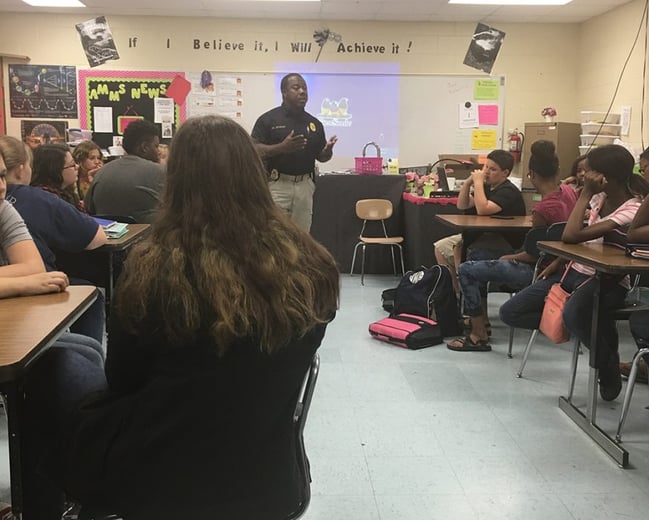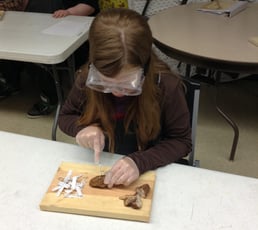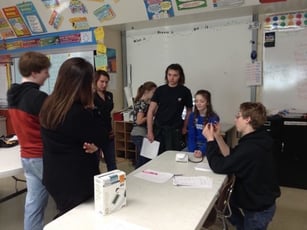Raven Ivey is a 7th grade life science and Medical Detectives teacher. Raven earned her undergraduate degree in biology from Tuskegee University. While pursuing an advanced degree in biology, with a focus on cancer research and drug discovery, Raven was awarded the GK-12 Fellowship and left Tuskegee University to attend the University of Alabama in Birmingham, where she received a Masters of Arts in science education with a focus in biology. At UAB, Raven obtained her teaching certificate and began her career as an educator through the UTEP (Urban Teaching Enhancement Program) Scholar. Raven has taught Advanced Placement Biology, pre-AP biology, human anatomy, physical science, and grad prep. In addition to teaching, Raven has worked as a graduate assistant and lecturer over the past 10 years. Raven enjoys motivating and encouraging students to be and accomplish anything that they set their minds to.
This is my first year teaching Medical Detectives, and I have to say it has been one of my favorite years so far in teaching. For reference, I started teaching in 2009, and I've found this to be an amazing course for my scholars.
I teach at a middle school in rural Alabama where many of the students have little exposure to the different types of careers that exist in biomedical science. Many students are aware of doctors, lawyers, truck drivers, farmers, police officers, or business owners, but few have met or had a chance to speak with someone in those fields outside of their family.
We are currently in Module 1 – “What is Medical Detectives?” – and we started with the latter piece in which the students had a chance to research a variety of careers. The top two careers that have stuck out the most to students have been forensic science and crime scene investigation. So this year, I have partnered with the school’s resource officer, who spent the last 15 years in the area of Crime Scene Investigation. While the students have truly enjoyed parts of the unit like using the probeware to test the body temperature and studying the effects of heart rate by looking at the pulse rate module, one of the main highlights has been having Officer Bradley come and take them through the process to solve a case. We have decided that to keep interest high, we will have him visit multiple times throughout the year, culminating in the spring when we finally solve the case. Thus far, this has been one of the most enriching experience for our students.
PLTW’s blog is intended to serve as a forum for ideas and perspectives from across our network. The opinions expressed are those of each guest author.


